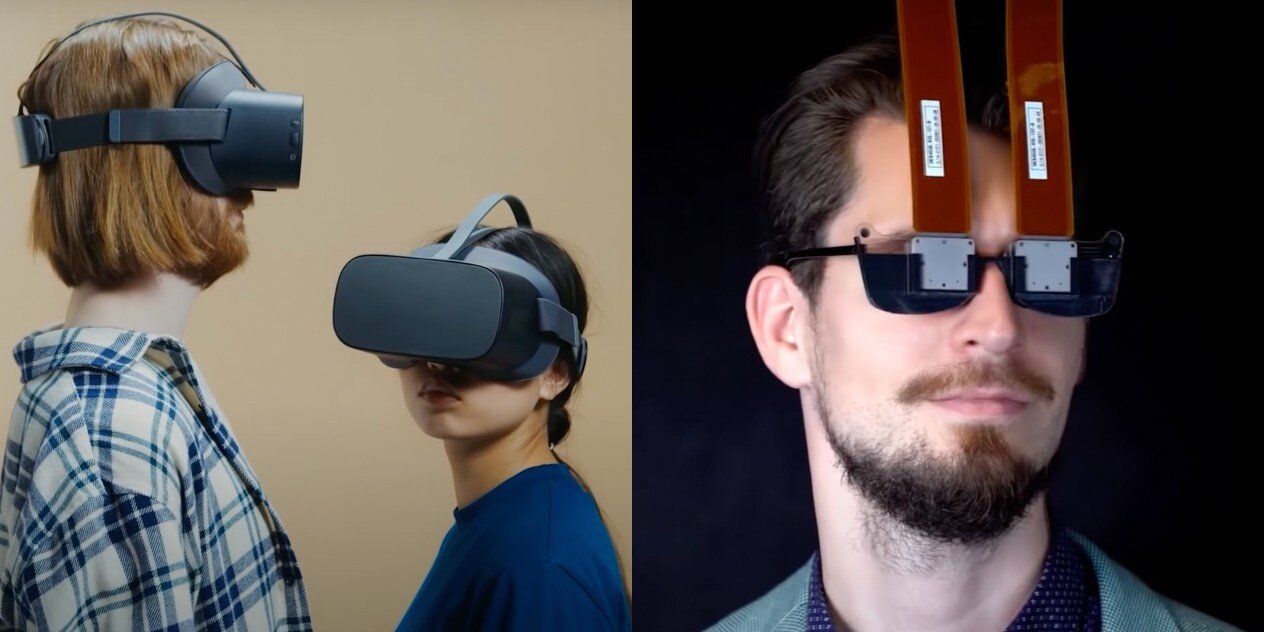NVIDIA demos super-thin holographic VR glasses with 120° field-of-view potential

NVIDIA Research and Stanford recently released a study on holographic virtual reality (VR) glasses, demonstrating the potential for a slimmed-down headset design that might make bulky goggles a thing of the past. In addition, the findings (see the video above) show the possibility of solving the vergence-accommodation conflict (VAC) — an issue VR users encounter when displays present 3D depth cues, creating confusion as the eyes try and focus at different distances.
The researchers have been working with form factors smaller than a commercially-available VR headset but say getting a 120° diagonal visual field with the prototypes would be simple. Road to VR has more, noting that the headsets you might be familiar with, like Meta Quest or HTC Vive, have remained in the same somewhat unwieldy size range due to “an optical constraint.”
“Most VR headsets use a single display and a simple lens. … [To] focus the light from the display into your eye, the lens must be a certain distance from the display; any closer and the image will be out of focus.“

NVIDIA and Stanford demonstrated that users could see views not previously available in VR by eliminating the space between display and lens. Their VR headset displayed holographic images using a spatial light modulator — a device that modulates amplitude, phase, or light polarization — instead of a lens.
NVIDIA’S prototype does have some issues. Because it blends 2D and 3D hologram images to make a virtual environment, there are restrictions on what it can display, and they aren’t high quality, either.
The research does point to near-future VR headsets almost indistinguishable from a pair of everyday glasses or sunglasses. Moving virtual reality from its current niche to a standard element of Web3 usage suddenly seems more plausible than ever.
Read related posts:
- Meta’s Project Cambria VR headset to launch this year
- What to expect from Apple’s upcoming mixed reality headset
- 15th Edition of Art Dubai Embraces Digital Art and NFTs
Disclaimer
In line with the Trust Project guidelines, please note that the information provided on this page is not intended to be and should not be interpreted as legal, tax, investment, financial, or any other form of advice. It is important to only invest what you can afford to lose and to seek independent financial advice if you have any doubts. For further information, we suggest referring to the terms and conditions as well as the help and support pages provided by the issuer or advertiser. MetaversePost is committed to accurate, unbiased reporting, but market conditions are subject to change without notice.
About The Author
Managing editor, mpost.io. Former Deputy Digital Editor, Maxim magazine. Bylines in Observer, Inside Hook, Android Police, Motherboard. Author of official "Better Call Saul" tie-ins "Don't Go to Jail," and "Get off the Grid."
More articles

Managing editor, mpost.io. Former Deputy Digital Editor, Maxim magazine. Bylines in Observer, Inside Hook, Android Police, Motherboard. Author of official "Better Call Saul" tie-ins "Don't Go to Jail," and "Get off the Grid."


















































